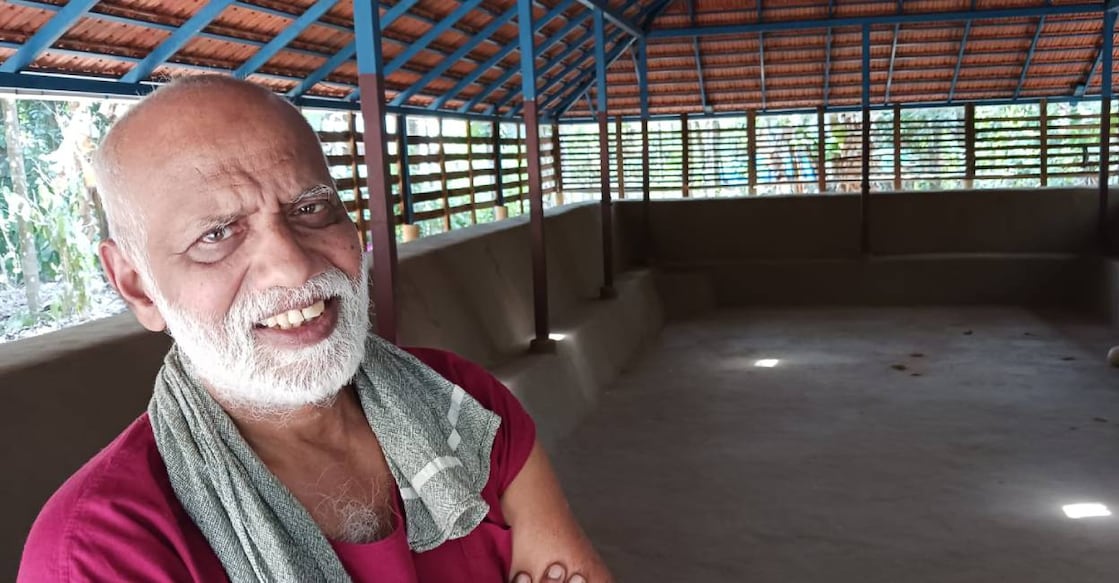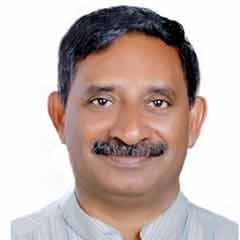K J Baby- Dalit writer & champion of Leftist ideals, tribal education

Mail This Article
Kalpetta: The demise of renowned activist-turned-writer K J Baby (70) on Sunday would leave a vacuum in the dalit literature, leftist theatre and tribal education. After migrating to Wayanad from Kannur in the 1960s, Baby lived at Nadavayal, a settler agrarian village with a significant tribal population. As a follower of extreme left ideology, he had fought with the system by penning novels and plays and revolutionising tribal education with his dream project 'Kanavu'.
A voice of dissent
Baby's street-play Nadugaddika had rocked the streets of Kerala during the emergency period as a voice of protest. Theatre was his tool to discuss the oppression of humanity under the regime, and he used the potential of tribal art, music and dance in it. Apart from him, all actors were tribals. Wherever the play was staged, the audience also joined the actors singing and dancing in tune with the rhythmic movements expressing solidarity with the cause. When the authority realised the power of 'Nadugaddika' as a political tool, the entire team, including Baby was sent to jail.
In 2021, the street play bagged the Bharat Bhavan award for best rural drama. Other major literary works of Baby include Mavelimantram (the dreams of a socialist world), Bespurkkana, on the settlers’ life in Wayanad and Goodbye Malabar. In 1994, his novel Mavelimantram won the Kerala Sahithya Academy Award. His latest novel, Goodbye Malabar, published in 2019, portrayed Wayanad during the British regime through the eyes of Anna, wife of William Logan, then Malabar Collector. He was the scriptwriter and director of the film Guda(2004) based on the rituals related to menarche, the first menstrual cycle (thirandukalyanam) of tribal girls. The movie was a stepping stone for many tribal children, including Leela, a current filmmaker in the film industry.
'Kanavu', a dream to educate tribal kids
As a continuation of his theatre activities, Baby started 'Kanavu' (translated as dream) in 1991. A residential alternative educational experiment, 'Kanavu' catered to drop-out tribal children in the remote tribal hamlets. He also ensured that his two children, Geethi and Santhi, studied under the same educational system. His wife, the late Shirly, a professor of English at Pazhassi Raja College, Pulppalli, had ensured support to the dream.
As for finding a livelihood, he formed an orchestra of children and toured all over India with the original ethnic rhythms of music and dance. The tribal language, rituals and traditions are also incorporated into the educational system to restore pride in the children. An exchange programme also evolved in which children from Kanavu went to elite alternate educational institutions like Rishi Valley in Bangalore and vice versa. In its good olden days, 'Kanavu' was a pilgrim centre for student teachers who regularly attended the sessions at 'Kanavu' every year. Many promising students from the Tata Institute of Social Science (TISS) also made it a must to spend a few days in 'Kanavu' to learn the rare breed of educational activism that was the driving spirit. In the 4-acre land, there was a library cum dormitory, tribal huts for individual visitors and a paddy field which provided farming lessons as well as food (rice) for a year. Lessons on archery, pottery, and bamboo crafts were also imparted during the schooling. Teachers and wards stayed together in the institution, sang, danced, travelled, engaged in farming and harvested.
Believed in the multi-faceted talents of children, 'Kanavu' had polished the students, focusing on the best of their talents. Yoga, Kalari and film direction and editing were also taught. In 2006, Baby converted 'Kanavu' into a trust (Kanavumakkal Trust) and backed out entirely by 2007.
“By 2007, he had taught us how to run the trust and the necessity of being independent”, said film director Leela, a product of 'Kanavu'. “Maman (the children fondly called Baby as Maman) was busy with travelling across the country and had spent many months in Thiruvannamalai along with his daughter Geethi. His death was shocking news to us”, she told Onmanorama.
“Since the death of ilemma (his wife Shirley), we seldom saw him”, she added. The outgoing students of Kanavu, who are now working in various parts of South India, have started to attend his funeral, which will be held on Monday.
An exit well-scripted
Born to a settler Christian family, Baby was the cultural face of the Naxalite movement in the 1970s. Fallen under the spell of the tribal language, music, rhythm and folklore, he had dedicated his life to the upbringing of tribals.
After quitting Kanavu along with wife Shirley, he had travelled far and wide. Her unexpected death in 2021 was a bolt from the blue for Baby as well as his two daughters. She had to sacrifice a fabulous life of riches by marrying Baby, who was leading a nomadic life with a Naxalite tag after his release from prison post-emergency period.
Baby had spent a few days with daughters Geethi and Santhi, and returned on Saturday. Battling with depression, he penned suicide notes- to the police, banks, friends and relatives, including daughters- on the cremation of his body. Finally, he had also informed his aide, who attended to him whenever he was in Nadavayal, that he would come home in the morning. “If you fail to find me at home, I will be at the Kalari”, he reportedly told him. As foretold, the man found him dead (hanging) at the Kalari where he used to practice yoga and his daughter Geethi trained in music and dance.
“He might have been gripped by depression but he had fooled everyone”, said his friend Tomy Elements, producer of Kanavumalayilekku, a documentary on Kanavu.
As his wish, his last rites would be held at the public burial ground at Thrissilery and the ashes would be immersed in River Kabani. A portion can be kept near the tomb of wife Shirley which is at his home in Cheengod, Nadavayal.


